Module 8: The value of philosophy of science
1/66
There's no tags or description
Looks like no tags are added yet.
Name | Mastery | Learn | Test | Matching | Spaced | Call with Kai |
|---|
No analytics yet
Send a link to your students to track their progress
67 Terms
What are the 3 scientific methods?
empirical
experimental
quantifiable
Describe the scientific method: empirical & define empiricism
if you wanna know something you have to observe it → knowledge brought down to perception
empiricism = the philosophical idea that (all?) knowledge is founded on observation
Describe the scientific method: experimental
experiments
intervene in the world to see different relations
Describe the scientific method: quantifiable
count, compute, apply mathematics to the world
psych = questionnaires, then they are scaled and then stats are applied, feelings are quantified
What are the 3 aims of science?
describe, classify, organize the world → listing all the animals in zoology
explain phenomena → why? determine the conditions under which smth happens
predict phenomena → using info from explain to predict smth, practical knowledge
What are issues with the scientific methods?
formal sciences (math and logic) are not empirical
evolutionary biology, astrophysics are not experimental
psychology is not always quantifiable
evolutionary bio doesn’t make future predictions
What are the two types of empirical sciences?
human (history, psych, economics) and natural sciences (chem, bio, physics)
The scientific revolution: what are the origins of modern science, who are 3 known scientists?
origins of modern science: the scientific revolution → 16th century
copernicus 1473-1543: against church dogma, geocentric model of universe
used experiments, mathematics in physics
galileo 1564-1642: advanced use of experiments, observations, and math in physics → world as a “book of nature”
isaac newton 1643-1727: principia mathematica
What is the beginning of the scientific revolution?
Francis Bacon 1620: Novum Organon
rejecting Aristotle’s deductive logic (general obersvations) as the only tool for gaining knowledge and embracing inductive reasoning:
inductive reasoning: starting from particular cases and generalising to general principles (axioms)
observing black ravens → all wings are black
“The other derives axioms from the senses and particulars, rising by a gradual and unbroken ascent, so that it arrives at the most general axioms at last. This is the true way, but as yet untried.”
What are 5 aspects of the scientific revolution?
rejection of method of authority → church dogma
no more reading only bible
acceptance of priority of observation over (possibly) faulty reasoning
prioritise observation
application of induction (generalising on the basis of a limited number of observations)
stimulating the use of experiment
rediscovery of mathematics as a tool for building models
What was an important element of the scientific revolution?
The mechanization of the world picture
Describe The mechanization of the world picture
what are the mechanisms that describe and explain how things move (or ex. how visions works)
if stars and planets obey universal laws in a mechanistic manner, then what about other aspects of nature, including humans?
trivial today but revolutionary at the time
Describe Thomas Hobbes and the book he wrote
17th century political philosopher
aim: understand humans and societies in mechanistic naturalistic manner
“to reason is the same as adding or subtracting”
The leviathan 1651
the legitimacy and power of a ruling government comes from a social contract among citizens who lose some of their freedoms in favor of security
naturalistic approach to political thinking: combination of mechanistic thinking about human behavior
Describe Christian Huygens
dutch mathematician and physicist
is there a place for free will and conscious thought?
“All the thoughts and actions of men follow one another with a certain mechanical necessity, although everyone thinks that he has full freedom of thought and action.”
“Therefore, everything that has happened, or is happening now, cannot possibly have happened otherwise, and cannot happen otherwise.”
can the mind be explained mechanistically → if thought = computation, you can make predictions
Describe David Hume
all the sciences have a relation, greater or less, to human nature; and that however wide any of them may seem to run from it, they still return back by one passage or another. Even Mathematics, Natural Philosophy, and Natural Religion, are in some measure dependent on the science of MAN; since they lie under the cognizance of men, and are judged of by their powers and faculties.
Treatise on Human nature, introduction
What are the two aims in the human and natural sciences?
Explaining vs. understanding → Wilhelm Dilthey (1883-1989)
natural sciences aims to explain (erklären)
method by which we explain (events/processes) in terms of (physical) causes
to describe the world in terms of cause and effect and their underlying laws
human sciences aim to understand (verstehen)
method by which we try to understand (actions) in terms of reasons (for those actions)
to come to a subjective understanding
explanation and understanding are not the same
We can understand the actions of other people (empathy). We can put ourselves in “their shoes”. We don’t do this in natural sciences
What are the 5 differences in Human vs Natural sciences?
humans are more than just physical objects and must be studied differently → not only by the method of natural sciences
human sciences have their own object of study: complex social human behavior
the social world is the world of assigning meaning (sense) to events and looking for reasons for behavior shown by rational actors
human sciences have their own method of investigation/research
human sciences try to understand human behavior not in terms of physical causes but in terms of reasons for behavior
human sciences have their own model of “explanation” - understanding
the humans sciences focus on human thinking, acting, and interacting
social sciences are looking for generalizations
the natural sciences focus on the physical and natural world
attempt to expose natural laws
What is the result of human and natural sciences having different aspirations?
discovering universal laws vs exposing regularities
we can only make precise predictions in the natural sciences
Challenge: If the method of understanding is not governed by laws or mathematical tools, how could it be objective?
The natural and human sciences therefore differ greatly from each other, both in terms of method, purpose and impact on the object of their study.
Explain looping effects
A theory can influence its object (of inquiry) in the human sciences, since it can influence what humans think and how they behave.
Another difference between the human and natural sciences
Human sciences interact with their “objects” of study, and can initiate changes → a theory in the human sciences can inform the people it describes and that this can influence their thinking and actions.
*Does not happen in natural sciences
there is no interaction between the theory and its object
Ian Hacking’s “looping effect”
Karl Marx’s theories of economics had a huge political effect on human governing structures.
Psychiatric classifications greatly influence the lives of the people that are being classified
What is the science of consciousness?
consciousness: subjective awareness and feeling
a being is conscious (or has subjective experience) if there’s something it feels like to be that being
Example, there is an experience of "what it's like" to be Michael or Ties, whereas this kind of subjective experience does not exist for inanimate objects like rocks.
on the one hand: Conscious experience is a key part of being a human
on the other hand: The aim of some CSAI people is to study consciousness as an empirical science.
What is the self-correcting tool?
common tool in (good) sciences
Carl Sagan: "Science is a self-correcting enterprise".
Gaston Bachelard: "Revision alone can found a scientific rationalism".
Jean Cavaillès: "one of the essential problems for the doctrine of science is precisely that progress cannot be a mere increase in volume by juxtaposition, the prior subsisting with the new, but must be a perpetual revision of contents by way of deepening and erasure".
the methodology and context (of both natural and human sciences) correct for the mistakes made by scientists.
How do cognitive artifacts protect against intuitive reasoning errors?
Mathematics, logic, and statistics not only extend the scope of science but also protect against intuitive reasoning errors like belief bias, gambler’s fallacy, hyperactive pattern detection, chance blindness, base rate fallacy, availability bias…
protection against confirmation bias
peer review
protection against overconfidence bias:
Reproducibility of experimental results → making sure other scientists can reproduce the same results and are robust and not distorted by statistical anomalies
Meta-analyses → pool all studies on a given phenomenon to reach more robust conclusions and to check whether the results of certain studies deviate strongly from the other studies (a good sign that they are flawed and should be discarded).
ex. too small of a sample which is not representative
Randomized control tests
Independent assessment of results and methodology → scientists publish both their results and research so other scientists can scrutinize them
How do framework and context protect against emotional interference?
protection against the in-group effect
rivaling research groups compete for scientific recognition and success → have motivation to prove a research team wrong
That is the beauty of critical / rational / scientific thinking: it is the only universal kind of thinking. Different cultures have different values, customs and beliefs, but logic, mathematics and statistics are the same everywhere and everyone can expose reasoning errors and help build better theories.
one the one hand: The size and the diversity of the community
on the other hand: The importance of universal standards for epistemic success: logical validity, coherence, simplicity, etc
Framework and context of pseudo-sciences on the other hand
Emotional identification with theories (as in religions)
Exchange ideas only with likeminded people
What is the importance of scientific progress?
*a century of scientific progress
Rational thinking in general and science in particular, is the driving force behind improving living conditions throughout history.
Average life-expectancy went from 46 years to more than 80 years in Western Europe. (globally 73 years)
Proportion of world population living in extreme poverty went from 82% to 11%.
Hilary Putnam’s “The No miracles” argument:
the predictive success of science would be a miracle if predictively successful scientific theories were not (at least) approximately true.
In other words, to improve society we need to develop the human sciences. The insights of social psychology, for example, are invaluable for social problems such as multicultural integration, radicalization and populism.
What is the replication crisis?
An ongoing issue in the last two decades, mostly in psychology and medicine.
Main issue: Many results that are taken as established science in those fields do not replicate.
Meaning: when other scientist try to repeat the experiments, they don’t get the same results.
Worry: Many published results are false positive results. (claiming that there is a important finding when in fact there is none)
Why is the replication crisis a crisis?
The public nature of good science implies that scientific results can be shared by and reproduced by different scientists.
Scientific experiments should not be a “secret” that only few scientists can control and understand.
But, many results that were considered scientific cannot be reproduced.
How can we trust empirical results in psychology and medicine as scientific if many other results have not been reproduced?
Why did the replication crisis happen?
the publication bias
Researchers are incentivized to publish new, surprising, results.
10 researchers do the same experiment independently, 9 fail to get an interesting result and they don’t publish their work and data.
By luck, 1 researcher gets an interesting result. Only that researcher will get published!
Another explanation involves the misuse of statistical methods.
The replication crisis is alarming.
But, an on going example of the self-correcting process of science.
New field, Meta-science: the science of testing and analyzing the practices of scientists. Part of meta-science is critical thinking about science.
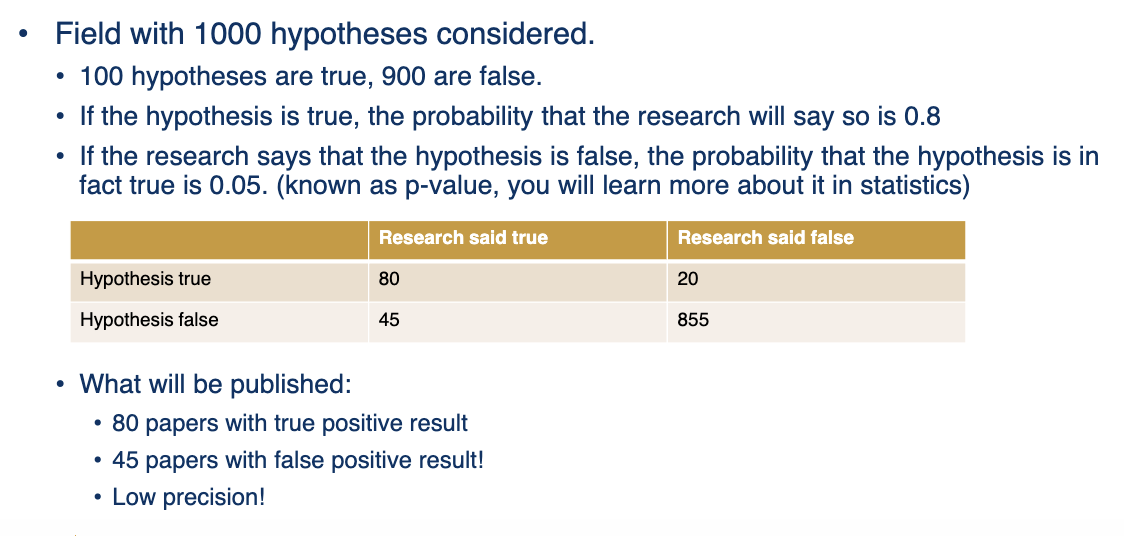
What is popper’s demarcation criterion?
A demarcation criterion distinguishing science from pseudoscience. Scientific theories must be testable: it must be possible in principle to refute the theory on the basis of observation.
a theory is only scientific if it is testable.
This means that it must in principle be possible to refute the theory based on observation
The reason is simple, we can never observe everything and so there is always the possibility that future observations will falsify a theory.
consequence: we can never state with absolute certainty that a theory is true
scientists do not follow popper’s theory 100% → Often a theory with a large explanatory scope should not be discarded when we are confronted with inconsistent observations.
when uranus’s orbit did not follow according to Newtonian physics, scientists did not discard his theory and instead found counter-evidence which led to the discovery of Neptune
Popper goes against the theory of: a theory is only scientific when it is shown by observation that the hypothesis is right.
Whereas verifiability is too strong a criterion, confirmation is too weak: many pseudosciences (such as astrology) are ‘supported’ by a long list of confirming observations. Only, these theories are rarely tested: astrologists do not attempt to refute their theories (being under the spell of the confirmation bias). In this sense, Popper’s criterion protects against the confirmation bias by explicitly inciting scientists not to look for confirmation for their hypotheses but instead to look for counter-evidence and counter-arguments.
What do cognitive artifacts protect against?
intuitive reasoning errors → system 1
What does framework and context protect against?
reasoning errors of system 2 and emotional distortion → ongoing example = the replication crisis
How do you calculate: accuracy, precision, recall, p-value?
Accuracy: TP+TN/everything
Precision: TP/TP+FP
Recall: TP/TP+FN
p-value: 1-accuracy
What is the p-value?
probability of obtaining positive results, assuming that the hypothesis is false.
What are the 2 aspects of critical thinking?
deductive reasoning methods (logic)
inductive reasoning methods (probability)
Both important to avoid bad reasoning.
A “general logic” for scientific thinking? → Probability Theory: The Logic Of Science. (E. T. Jaynes)
Is the scientific method deductive or inductive?
inductive
Argument pattern (scientific method?):
Premise 1: E1
Premise 2: E2
Premise 3: E3
...
Conclusion: probably H
Inductive reasoning is a type of reasoning method that analyzes specific evidence or observations to form general inferences.
According to the inductive approach to science (Bayesian philosophy of science, verificationism), H is verified by a slow inductive process of confirmation via observations.
Scientific method: the inductive approach
Scientific method: inductive argument.
Observations (E1,E2...) slowly confirm H.
Scientific method: a long process of confirmation
Problem: We are finite and mortal, can never check all the possible evidence (every piece of caesium?). Never really verify anything...??
What did David Hume bring up about induction?
Premise 0: The future will resemble the past
Premise 1: E1
Premise 2: E2
Premise 3: E3
...
Conclusion: probably H
AND
Premise 0: The laws of physics will cease existence in the year 2025
Premise 1: E1
Premise 2: E2
Premise 3: E3
...
Conclusion: probably not H
There is a hidden assumption in the argument
Premise 0: The future will resemble the past
Premise 1: E1
Premise 2: E2
Premise 3: E3
...
Conclusion: probably H
Hume: this extra assumption appears in every inductive argument about nature.
Example: In the Caesium case, we assume that future Caesium pieces will behave like the ones we observed in the past
Premise 0: The laws of physics will cease existence in the year 2025
Premise 1: E1
Premise 2: E2
Premise 3: E3
...
Conclusion: probably not H
Now we don’t have reason to think Caesium will always explode in water
What does every inductive argument involve?
Every inductive argument involves extra assumptions
Premise 1: I woke up today
Premise 2: I woke up yesterday
Premise 3: I woke up two days ago...
...
Conclusion: I will probably wake up every day in the future.
What does Bertrand Russell propose about inductive arguments?
We make inductive arguments all the time
A horse which has been often driven along a certain road resists the attempt to drive him in a different direction. Domestic animals expect food when they see the person who feeds them. We know that all these rather crude expectations of uniformity are liable to be misleading. The man who has fed the chicken every day throughout its life at last wrings its neck instead, showing that more refined views as to the uniformity of nature would have been useful to the chicken.
The mere fact that something has happened a certain number of times causes animals and men to expect that it will happen again. Thus our instincts certainly cause us to believe the sun will rise tomorrow, but we may be in no better a position than the chicken which unexpectedly has its neck wrung. We have therefore to distinguish the fact that past uniformities cause expectations as to the future, from the question whether there is any reasonable ground for giving weight to such expectations after the question of their validity has been raised.
What is uniformity of nature? Can it be justified with inductive and deductive arguments?
the future will resemble the past
Can we justify this claim with an inductive argument?
No: we just said its an assumption of every inductive argument.
Can we justify this claim with a deductive argument?
No: it can be false, we cannot be 100% sure its true.
What does Hume say about justifying inductive conclusions?
Inductive conclusions are only justified given extra prior assumptions about the world (like the uniformity of nature).
And such assumptions cannot be justified by induction, because they are needed for every inductive reasoning.
This is a longstanding problem to the inductive approach to scientific thinking (or the inductive scientific method)
According to Popper, why can’t the scientific method be inductive?
Karl Popper (1902-1994): The scientific method cannot be inductive, because of the problem of induction.
We cannot verify or confirm theories with induction or deduction. But we can falsify theories with deductive reasoning.
Popper: Good science only involves falsifying theories by deductive reasoning
What is falsificationism?
The only way to progress in science is by this argument pattern (falsification by deduction).
What is the argument structure of: scientific method, deductive argument?
Premise 1: If H then E
Premise 2: Not-E (result of experiment)
Conclusion: Not- H (falsifying H)
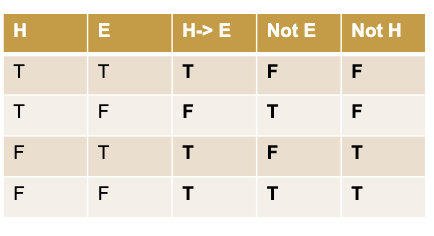
What type of argument is Eddington’s 1919 Solar eclipse observation?
Scientific method, deductive argument:
Premise 1: If Newton’s theory is true, we will see star X at position Y during the 1919 Solar eclipse
Premise 2: star X was not at position Y during the 1919 Solar eclipse
Conclusion: Newton’s theory is false
This experiment showed the superiority of Einstein’s theory over Newton’s
What bypasses the problem of induction? and how?
falsificationism
Only theories that can be falsified by observation count as science
Scientific method follows a deductive structure.
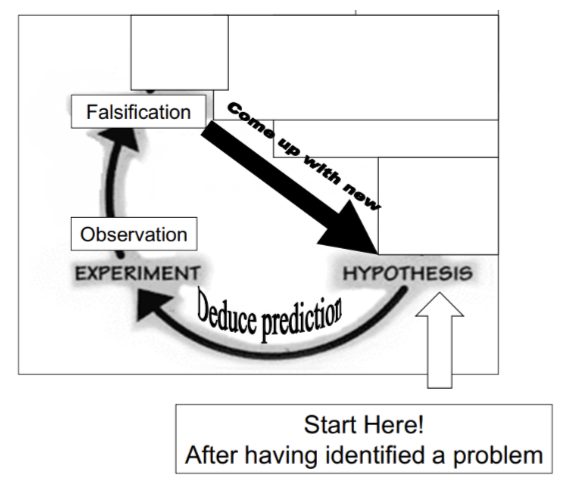
What are the 2 approaches to scientific thinking? and what are the final aims of each?
1.The probabilistic Bayesian approach: we collect data to confirm or falsify our hypotheses.
Final aim: to verify theories by induction.
Goes back to Francis Bacon
2.The deductive Popperian approach: our aim is to look evidence, experiments that deductively falsify our theory, and then come up with better ones.
Final aim: to falsify theories by deduction
**The two approaches are in conflict.
What is the problem of falsificationism: structure
the structure of scientific claims
simple universal claims:
“All A are B” (All pieces of element 55 explode in water)
Popper noted that it can take infinite effort to verify such claim, but they can be falsified with one instance.
Popper concludes that only falsification is a possible project.
More complicated claim structure: For every A, there is a B such that....
“For every person there is another person who is their biological mother”
To verify: need to check all persons
To falsify: need to find one person, and then check that all other persons are not their mother.
Both require infinite effort.
Feyerabend’s epistemological anarchism
Feyerabend’s epistemological anarchism:
Paul Feyerabend, influenced by Popper and Kuhn.
1975, Against Method
Against a demarcation criterion
or any restrictions on scientific practice
‘Anything goes’!
There is not one correct way to understand reality, but many different and valuable ways. The world is so much more complex than presented in scientific models and theories, and when we limit ourselves to a single perspective on reality (a scientific worldview), we are left with an impoverished worldview.
argues that the demarcation criterion prevents new knowledge from being acquired which prevents knowledge from progressing
Major scientific breakthroughs, Feyerabend argues, came about precisely because scientists broke the rules of their time.
We should let everything bloom instead of constantly weeding out ‘bad’ theories
he thinks the rules are too restrictive for any inquiry of knowledge
there is not unifying method in science, we shouldn’t oppose restrictions on what scientists do bcs it will hinder progress in science
everybody should be free to do what they want, having one view of what science is excludes other scientists
there can be different traditions of science → china vs western science, post-colonial argument
Postmodern constructivism
Postmodern constructivism:
Feyerabend fits with postmodernism
According to post-modern thinkers, there are no objective facts, only constructions and interpretations.
science is no better than magic, just a different perspective
What is the problem of falsificationism: real science
Progress in science seems impossible, we never get a true theory.
In real life, scientists constantly use inductive methods. Are they all wrong about how to do science correctly?
In real life, if an observation contradicts a hypothesis or theory, we tend to modify the hypothesis, or reinterpret the observation. We rarely reject the hypothesis completely
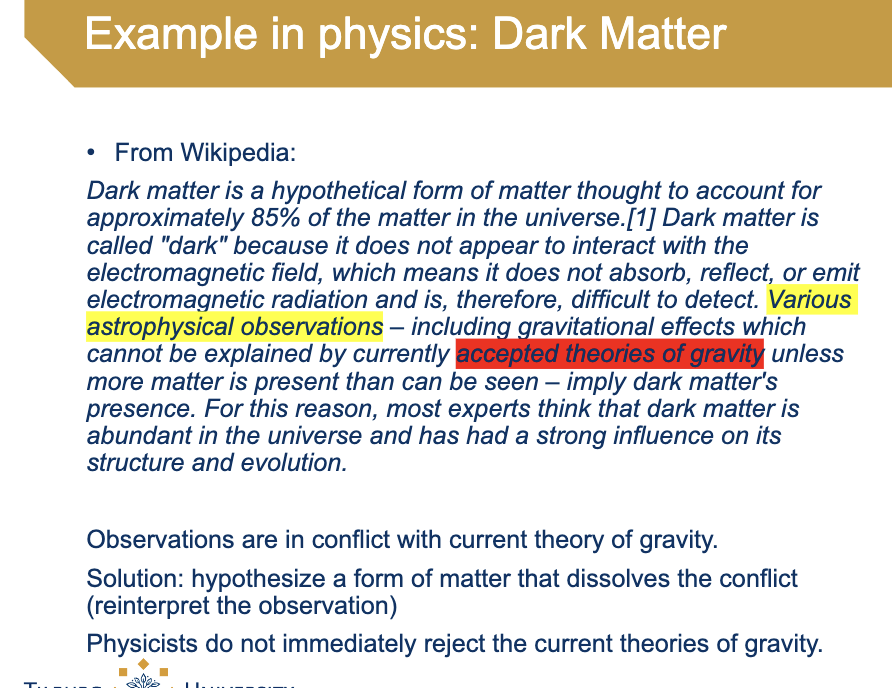
What is the fallacy of unfalsifiability?
modifying our theories so that they become unfalsifiable
ex. Imagine Sarah says to you: “There is an elephant in this room.” And you say, I don't see an elephant.” Sarah might respond, “Oh, it's an invisible elephant.” You could try to say, “Well, I don't smell it; elephants are smelly,” but Sarah could simply say, “Invisible elephants don't smell.” And you might get up and walk around and say, “Well, I'm walking all around the room, and I don't feel or bump into an elephant.”
According to the inductive approach, what type of process is the philosophy of science? and what’s the problem?
Slow, long process of verification
Problem: the problem of induction
Maybe: these problems show that thinking about science as “getting to the truth” is a mistake?
According to Popper’s deductive approach, what type of method is the philosophy of science? and what’s the problem?
The method is falsification, immediate
Problems: doesn’t work for all claims, too restrictive
Maybe: these problems show that thinking about science as “getting to the truth” is a mistake?
What are the two opposing philosophical positions?
scientific realism
scientific instrumentalism
Scientific realism and instrumentalism are two (extreme) opposing views about the purpose and nature of scientific theories.
Realism: doing science – getting at the absolute truth of reality
Instrumentalism: science has nothing to do with “truth”, just a matter of what works
Practical vs. theoretical approach to science
Different scientists have different views here. Debate.
Important debate in understanding scientific thinking.
Describe scientific realism
[Scientific] realism is committed to the idea that theoretical claims (interpreted literally as describing a mind-independent reality) constitute knowledge of the world.
According to scientific realism, our best scientific theories are our best representation of reality, path to absolute knowledge
Describe scientific instrumentalism
[...] the view that [Scientific] theories are merely instruments for predicting observable phenomena or systematizing observation reports.
According to instrumentalism, science is just a tool to manipulate reality (think hammer): to make good predictions, engineering.
Problem of induction? As long as things work, we don’t care. Anyway, we are not committed to claims about the future unobservable.
Problems of modification of theory and falsifiability? As long as the modification are fruitful, why not?
However, many believe that instrumentalism is too simplistic. if science is not a guide to the truth, what could be?
What is Popper’s view on the progression of science?
Sciences advance by conjectures and refutations.
Never reaching an end.
Hypothesis, prediction, observation, refutation...
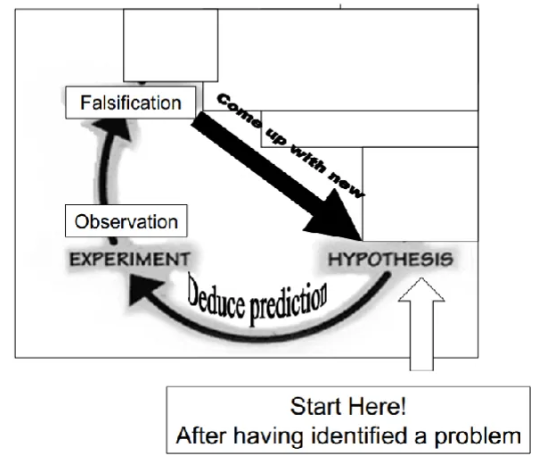
What are the 3 aspects of Popper’s philosophy?
The demarcation criterion between science and non science:
“Theory is scientific iff it is in principle falsifiable”
The structure of the scientific method:
“Scientific method: logically deductive (not inductive) modus tollens argument”
The evolution and progression of science:
“never ending cycle of conjectures and refutations”
**The three are related, but not identical. can accept some, not all
Describe Thomas Kuhn’s view on the evolution of science?
Thomas Kuhn, historian and philosopher of science, reacting to Popper’s (and others) view of the progression of science
The Structure of Scientific Revolutions (1962)
Idea: the real progress of science is not this rational process (Popper), it involves “revolutions”, like in politics.
“Paradigm shifts”: some scientific changes make a complete change in scientific world view.
post-revolutionary science: theory is not yet 100% entrenched into beliefs, but working on it
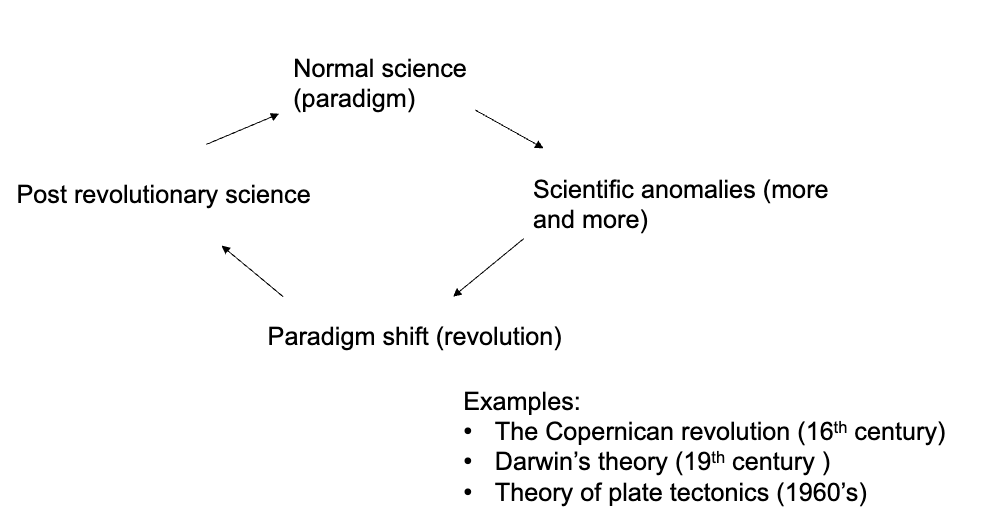
What is the Copernican revolution an example of regarding Kuhn?
paradigm shift
Normal Science: Geocentric model (earth at the center), before the 16th century
Anomalies: retrograde movement of planets, new stars appearing, moon of jupyter
Revolution: Copernicus, Galileo
New paradigm: the heliocentric model, Newton
What is a revolution in ai?
In the beginning of AI research (1950-1960), symbolic, logical approach dominated the field. For example, in machine translation.
In that time, statistical probabilistic models of language were not considered useful.
1969, Noam Chomsky: “But it must be recognized that the notion of 'probability of a sentence' is an entirely useless one, under any known interpretation of this term”.
Today: paradigm shift, probabilistic models are the most common tools in language based AI, by a far margin.
What are elements of Kuhn?
Different paradigms are incommensurable (not translatable)
(related: Sapir-Whorf hypothesis, Gestalt switch)
The meaning of the word star, planet, has changed!
Consequently: the shift is not fully rational; more like conversion or a political revolution
(does it have nothing to do with rationality?)
Standard philosophy of science: explaining science as the most rational process.
Kuhn is in opposition to the standard view
you either have one view or another → either you believe in Copernicus heliocentric view or you have geocentric view, but not both
*controversial
In a scientific revolution, as in a political one, rules break down and have to be rebuilt afresh. If you look at two pieces of scientific work across a revolutionary divide, it will not be clear whether there has been progress from earlier to later. It might not even be clear how to compare the theories or pieces of work at all—they may look like fundamentally different kinds of intellectual activity. The people on different sides of the divide will be “speaking different languages.” In the climax of his book, Kuhn says that workers in different paradigms are living in different worlds.
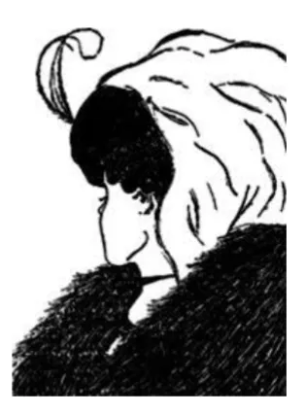
What is a conclusion in sciences regarding which scientific method to use?
Science should not be too restrictive, but it shouldn’t be too inclusive either, otherwise there are:
No universal standards
No reliable base to build upon
**Again, striking the balance is hard, there is no simple recipe.
The evolution of Science:
Popper: conjectures and refutations (logical, rational process)
Kuhn: incommensurable paradigm shifts (non rational, conversion style change)
No rules to scientific practice?
Feyerabend, against method
Sokal hoax, striking a balance
The logic of the scientific method:
Inductive, probabilistic, The problem of induction
Deductive, Popper, limitation with that approach
Meta-question: Scientific realism or instrumentalism?
What is methodological anarchism?
you should be free to do science as you want without any limitations and rules
Paul Feyerabend